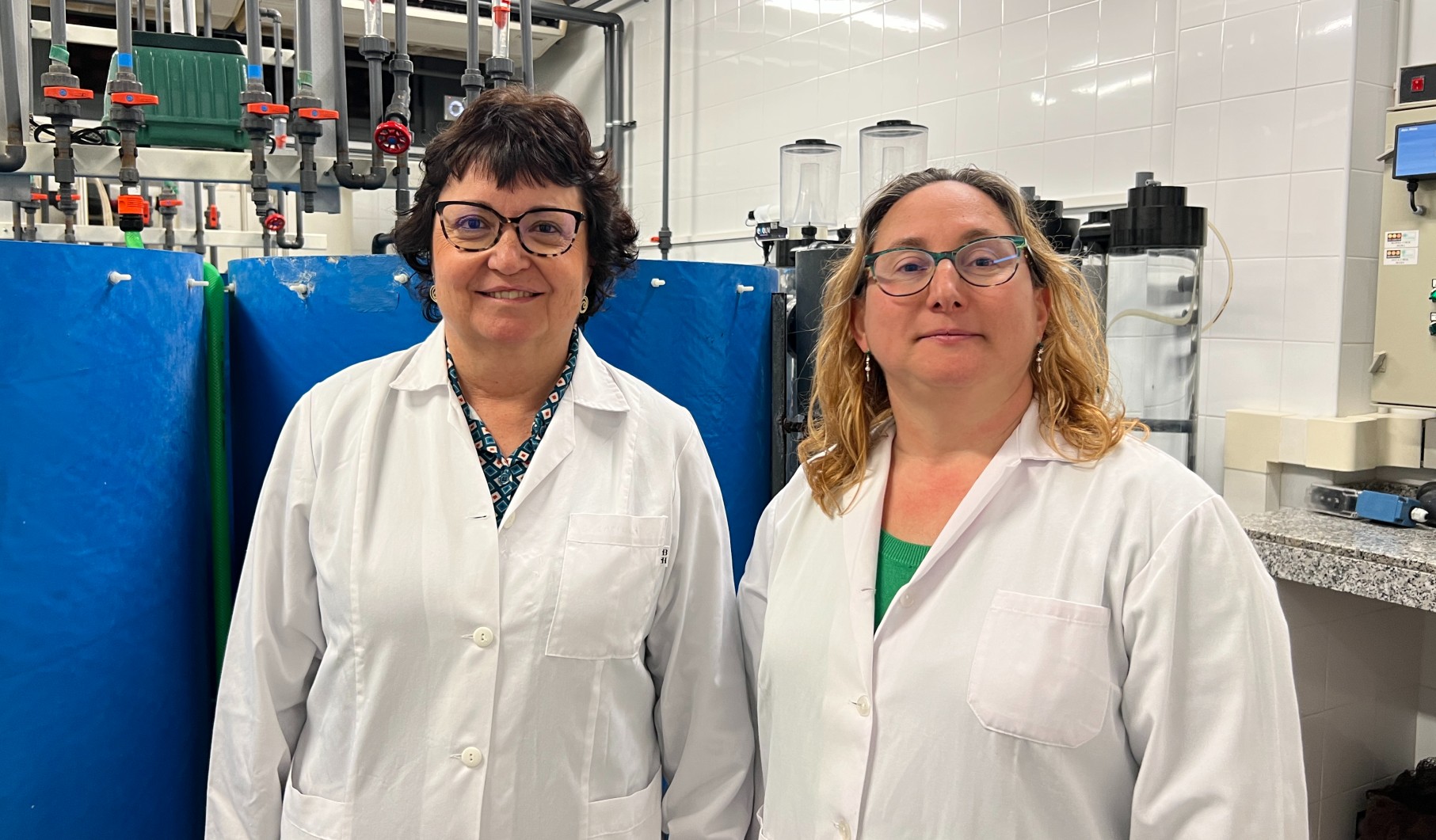
“We are trying to improve the sustainability of fish feed”
In recent years, the expansion of the aquaculture industry has led to a high demand for alternative ingredients to fishmeal and fish oil for fish feeds. Currently, there is also a growing interest in the use of bioactive compounds with beneficial properties as feed additives to improve replacement diets and make them more sustainable. To test these additives, production companies must conduct in vivo growth trials that can be time-consuming and costly.
Through the Proba de Concepto grant received in 2021, Drs. Encarnación Capilla and Isabel Navarro, professors at the Faculty of Biology of the University of Barcelona, are developing with primary fish cell culture models, an efficient screening tool to test the direct effects of potential additives.
Their goal is to provide the market with a technological package of in vitro tools that will allow many products to be tested for preselection of compounds, with low costs in animals, facilities and time.
What is the project you are working on?
We are working on the search for new ingredients and additives that can improve the health and quality of fish in the aquaculture industry and that can also be beneficial for the consumer. We can test many products at the same time to give information on which ones can be more suitable for the companies. We are a research group that has been involved in the aquaculture field for many years and we work on optimizing the growth, nutrition and metabolism of these animals.
How do you save time and money for feed producers with this in vitro cell culture system you are developing?
Our project offers a cell culture system to test these products in a much faster and cheaper way, with the advantage that we can evaluate many products at the same time and test different combinations and interactions. We work with cell cultures that are from the same species that are grown in aquaculture; therefore, they are very close to the physiology of the fish. The system we apply is innovative because it saves time and money for feed and additive producers.
What are the differential aspects of your project?
A remarkable aspect is that we work with different cell types coming from adipose tissue, muscle, liver or bone and we can study different biological properties, such as a growth stimulating effect, an antioxidant effect, anti-obesogenic or even an immune system stimulator.
Is fishing better viewed than aquaculture?
Yes, people still find it difficult to accept a product from aquaculture over that from fishing. In other sectors, such as livestock farming, raising animals in limited spaces is more accepted. We want to make a healthier product and achieve safer and more sustainable food. We would like society to have a better vision of aquaculture.
Do fish raised in aquaculture have better control and quality?
Until now, many of the feeds that were made were fishmeal and fish oil, but many alternative ingredients are now being used. Aquaculture-raised animals are safer to eat and, in many cases, are more protected and controlled than fish caught in the sea. With the additives we are working on, we are also looking to make them more nutritious and to enhance the circular economy. We are trying to improve the sustainability of fish feed.
What is the state of your technology?
In the scientific field we have it consolidated. We have already done some tests, the methodology works and can have different uses or applications. Therefore, we have the technology and it has the capacity to expand depending on the area in which we transfer the research. Now we are trying to identify potential customers, although we have already done some tests with collaborating companies. The idea we have is to focus on additive companies, feed production companies or even the pharmaceutical industry.
More about Dr. Encarnación Capilla and Isabel Navarro…
The best invention in history?
Dr. Capilla: Vaccines
Dr. Navarro: Electric light
What would you like to see in the future?
A more sustainable and socially safer planet.
An advance in the future that scares you?
Dr. Capilla: I am afraid of the rapid advance of new technologies.
Dr. Navarro: The misuse of technologies and the control they can have on the population.
A point of reference?
Dr. Capilla: My mother, who has always supported me.
Dr. Navarro: Mercè Durfort, who was a professor at the University of Barcelona.
The transfer is important because…
To make research reach society and to be able to improve it.

